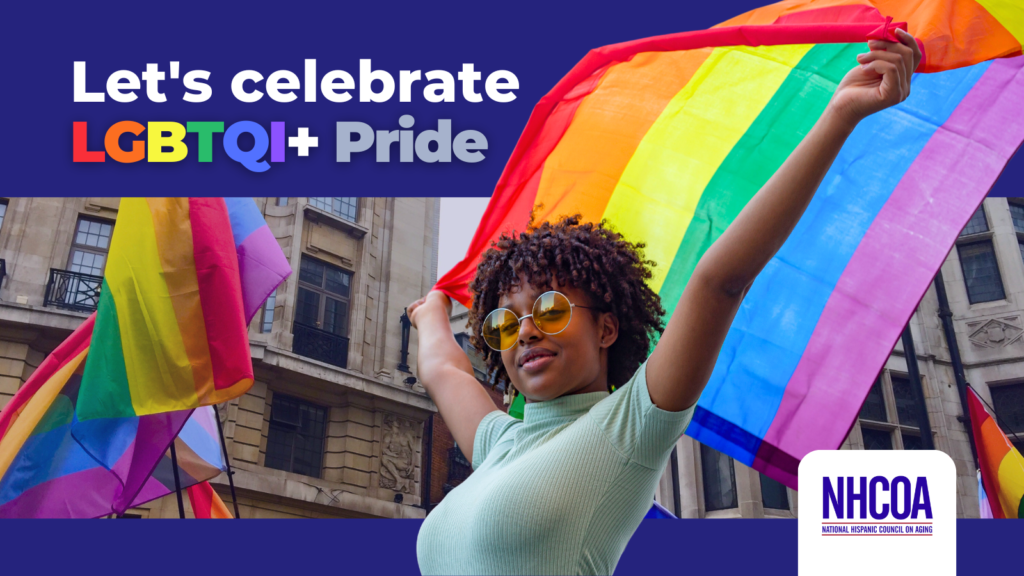
Since 1970, every June 28 has been recognized as LGBTQI+ Pride Day, which seeks to validate the feeling of pride in the identities and diverse sexual and gender orientations that have been historically marginalized. Around the world, gatherings are held for the entire LGBTQI+ community to celebrate their communities and demand respect for their rights and equality among all people. There are also political assemblies that stand up for the protection of the integrity of the members of the community who have been victims of discrimination and hate crimes.
Pride is born from a history of struggle. For years, LGBTQI+ people have had their rights denied due to social and political impositions by a heteronormative society that criminalizes differences. Thus, the LGBTQI+ Pride celebration was born out of the confrontation that took place at the Stonewall Inn bar in New York in 1969, between police officers and the bar’s clientele.
The Stonewall Inn was a gay bar in New York where members of the community gathered in the late 1960’s. It was a safe space for diverse people to interact and coexist with the freedom, respect and security that society denied them.
After these confrontations, in 1970 several groups of the LGBTQI+ community in the United States formed the “Gay Liberation Front ” and June 28 was declared Pride Day, in memory of the Stonewall confrontation. That initiative marked a historic milestone in the struggle for LGBTQI+ rights and influenced movements around the world.
It was also the beginning of a struggle that gradually had its first victories. In 1924, the Society for Human Rights, founded by Chicago-based activist Henry Gerber, became the first gay rights organization in the United States. It was followed by the Mattachine Society, the national gay rights organization, in 1950, and by the Daughters of Bilitis, a lesbian rights organization, in 1955.
In 1962, Illinois became the first state in the United States to decriminalize consensual sexual conduct between consenting adults of the same sex in private. Eleven years later, in 1973, the American Psychiatric Association removed homosexuality from its official list of mental disorders. And on October 14, 1979, the National March on Washington for Lesbian and Gay Rights brought together some 75,000 gay men, lesbians, bisexuals, transgender people and their heterosexual allies and established LGBTQI+ rights as a national issue.
Today, same-sex marriage is legal nationwide thanks to a landmark U.S. Supreme Court ruling issued on June 26, 2015. On that date, the Supreme Court ruled that all 50 U.S. states must issue same-sex marriage licenses and recognize same-sex marriages that took place in other states.
Looking back we can reflect on the scope that this celebration has had, both in society in general in order to make visible a population that has been the victim of stigmatization and unjustified violence, and also in the young queer generations who were born with the celebration of pride as something common and normal.
Since 2012, the Gallup consulting firm has been conducting a survey gauging how many adults consider themselves a part of the LGBTQI+ community. In 2022, 7.1% of the population in the United States recognized itself as a member of the LGBTQI+ collective, with younger adults significantly raising the statistic to reach this historic number. This 7.1% in 2022 is double the number of people who identified as LGBTQI+ in 2012.
These numbers reflect a present reality in which there is less and less fear, and the pride in living honestly and openly increases. A pride in living in a society that fully understands the importance of full inclusion, not only of sexual orientation and gender identity but also of race and religion. A society that allows a full and safe life for each of its individuals in the full exercise of their freedom and fundamental rights as persons.
NHCOA celebrates the achievements made and at the same time recognizes that there is still much work to be done and many battles to be won. NHCOA recognizes that it is the responsibility of the state and civil society fundamentally, to build a safe space for members of the LGBTQI+ community in which they can develop with full confidence and free from all types of discrimination and stigmatization in their daily lives.
Therefore, we must continue the fight to eliminate the rejection of LGBTQI+ families, as there are still countries where it is still a crime to be diverse and to love in freedom. We must fight for the lives of trans people who have been victims of transphobia. We must fight to demand authorities ensure the fundamental rights of members of the LGBTQI+ collective beyond the discourse, claiming the human rights inherent in every individual.
Happy Pride Day!
References:
OPINIÓN | Marchemos por el orgullo y para reclamar nuestros derechos (cnn.com)
El 7% de la población estadounidense se identifica como LGBTQ+ – Infobae
Avances de los derechos LGBTQI+ en EE. UU. | ShareAmerica¿Por qué se celebra el 28 de junio el Día del Orgullo LGTBQI+? (elespanol.com)

Recent Comments